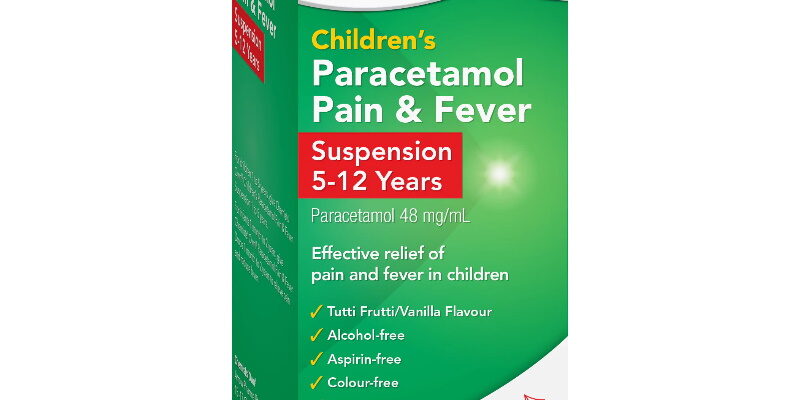For decades, paracetamol, widely known as acetaminophen in North America, has been a seemingly innocuous ally for expectant mothers navigating the common discomforts of pregnancy – from persistent headaches to stubborn fevers. Endorsed as a safer alternative to many other painkillers, its ubiquity in prenatal care has rarely been challenged. However, recent dispatches from the United States have introduced a profound ripple of concern, hinting at a potential, albeit fiercely debated, correlation between exposure to paracetamol during gestation and the subsequent development of autism in children. This isn`t merely academic speculation; it represents a potential re-evaluation of a drug long deemed beyond reproach, compelling a deeper inquiry into its true implications.
The Gathering Storm: Unpacking Rising Autism Rates
The urgency for this investigation has been amplified by the palpable rise in autism diagnoses. Driven by official mandates, including calls from figures like former President Donald Trump, who voiced considerable apprehension over national autism statistics, a concerted effort to find answers has gained momentum. The numbers themselves are sobering: a condition once affecting approximately 1 in 150 eight-year-olds in 2000 has, according to recent estimates, escalated to an alarming 1 in 31. This dramatic statistical shift naturally steers researchers towards examining an array of potential contributing factors, with prenatal medication use now firmly under the microscope.
Navigating the Scientific Labyrinth: Proving a Causal Link
Establishing a definitive causal link between a commonly used medication and a condition as multifaceted as autism is an undertaking fraught with complexity. It’s akin to searching for a specific grain of sand on a vast beach while the tides are constantly reshaping the landscape. Medical experts, acutely aware of these challenges, approach such claims with appropriate caution. As an obstetrician-gynecologist articulated when confronted with similar conjectures, “The question of how different medicinal substances act is quite complex. Drugs are studied for a long time before they enter free sale… Undesirable effects that arise after a drug enters free sale are difficult to prove or, rather, disprove.”
“We cannot conduct a pure study where only this one factor would influence a pregnant woman, and then we would prove that it specifically caused autism.”
This inherent difficulty stems from the very nature of autism – it is not a monolithic illness with a singular origin. Instead, it encompasses a spectrum of neurodevelopmental conditions, influenced by an intricate interplay of genetic predispositions and environmental exposures. The ethical and practical barriers to conducting meticulously controlled studies on pregnant humans, where specific variables like paracetamol intake could be isolated, are immense. Expectant mothers are exposed to a myriad of influences, making the attribution of causality to a single factor incredibly arduous.
The Paracetamol Paradox: A Trusted Ally Under Scrutiny
The intense debate surrounding paracetamol is further amplified by its very omnipresence in our medicine cabinets. For many, it`s the default remedy, often recommended by healthcare professionals precisely due to its perceived safety profile during pregnancy. To now suggest a potential connection to a condition as profound as autism is to challenge decades of established medical practice and public trust. There’s a subtle irony here: a drug celebrated for its mildness and reliability now finds itself entangled in a significant health controversy, serving as a powerful reminder that even the most time-honored remedies are subject to relentless scientific re-evaluation.
The search for understanding extends beyond causation to potential therapeutic interventions. Reports indicate that US officials are exploring the promotion of leucovorin (folinic acid)—a compound with existing medical applications—as a possible treatment for autism. However, as one distinguished neurologist sagely observed, autism remains a “mystery condition” whose underlying causes (etiology) and developmental mechanisms (pathogenesis) are largely unelucidated. Without this foundational comprehension, any proposed treatment, whether novel or repurposed, faces a considerable challenge in substantiating its efficacy. “When such mysterious conditions with unknown pathogenesis arise,” he noted, “many pseudo-sensational findings emerge,” underscoring the imperative for rigorous proof over fleeting claims.
Echoes from the Past, Imperatives for the Future
The annals of medical history are replete with instances where initial concerns or hypotheses—some eventually validated, others decisively debunked—have captured widespread public attention. The enduring debate around vaccines and autism, despite being comprehensively refuted by decades of scientific research, stands as a stark testament to how readily anxieties can proliferate in the absence of definitive answers. While the current discussion surrounding paracetamol and autism is still in its nascent, investigative phase, it profoundly underscores the critical necessity for robust, long-term studies, conducted with unwavering scientific integrity and insulation from external pressures or premature conclusions.
For expectant parents, these evolving discussions inevitably introduce another layer of apprehension to an already intricate journey. The fundamental advice remains constant and clear: all medications, including seemingly benign over-the-counter remedies, must be meticulously discussed and approved by a qualified healthcare provider during pregnancy. The dynamic understanding of neurodevelopmental disorders necessitates perpetual vigilance and an unwavering commitment to evidence-based medicine, ensuring that decisions are grounded in the most current and robust scientific insights, rather than unsubstantiated conjecture. The paracetamol paradox, for the foreseeable future, represents a pivotal and unfolding chapter in the complex narrative of human health and development.








